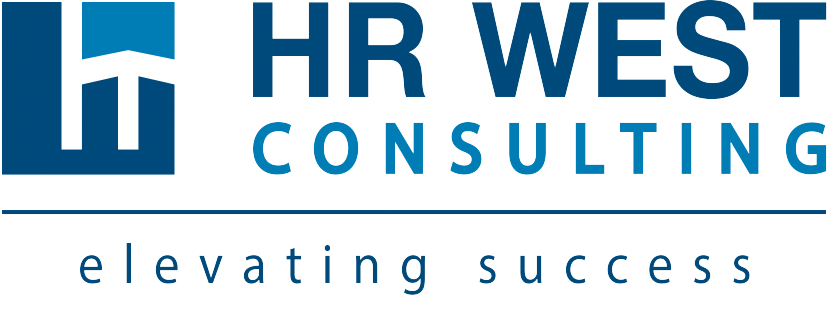The following article was originally published in InnFocus magazine, Summer 2021 Edition. See it online at:https://www.yumpu.com/en/document/read/65699940/innfocus-summer-2021
by Chantel Wellman
“Productivity is doing things you were never able to do before.”
-Franz Kaftka
The Potential of Productivity!
Almost overnight the world changed in March 2020 and now, as we slowly emerge and discover the “new normal”, it allows businesses a chance to reimagine their work processes and offers an opportunity to improve productivity.
In addition to the new acronyms we’ve learned over this past year, like PPE and mRNA, words like “adapt” and “pivot” are now a part of our everyday vocabulary, and rightfully so—they have been the cornerstone to success for many during the pandemic.
COVID-19 has had an extraordinary impact on working arrangements. Many of us have had to adapt to online technologies, pivot to working remotely, and develop new work processes that allowed the business to remain operational.
As we prepare to welcome travellers back this summer, now is the time to reimagine our work processes. We should ask ourselves how we can re-engage with our staff while optimizing labour productivity. One of the takeaways from the pandemic is that our workforce is flexible and capable of many things, and cross-training and upskilling are a prime example of how we can optimize the workforce we have.

Unlock Your Employees Potential with Cross-training
Consider utilizing cross-training to harness the power of existing employees and not restrict someone to a narrow view of their job. As managers and leaders, we need to challenge our assumption of what one person can accomplish and contribute to the workforce. Setting our sights on increasing productivity while increasing employee engagement and satisfaction will be paramount to any business’ success.
The need for cross-training and upskilling is not unique to the pandemic (or hospitality), the World Economic Forum’s The Future of Jobs Report 2018 cites that by 2022 “54% of all employees will require significant re- and upskilling” and that two-thirds of employers expect workers to adapt and pick up skills in the course of their changing jobs. As we move towards increased automation in the hospitality industry around the world, from app-based check-in or text-based communication with guests, it is important that we concentrate on improving workflow processes.
The goal of cross-training is to help employees expand and develop new skills to allow them to perform multiple functions throughout the operation, with a focus on eliminating or reducing both duplication of tasks between departments and classifications or inefficiencies found in certain positions.
Think about these practical examples:
- Night audit learning laundry functions (even just folding towels) for those quiet periods throughout the night hours.
- Front desk learning the function of a lobby coffee bar to assist during rush periods in the morning.
- An accounts payable employee learning how to do payroll to cover a leave of absence or vacation.
- Using an additional server rather than adding a host.
- Extending the hours of a breakfast cook so he has time to do dishes and eliminate the dishwasher hours.
The examples above increase efficiencies allowing your business to reduce hiring needs while maximizing the current workforce.
Cross-training can also pay dividends by making employees more effective, and is commonly used to alleviate pressures of unexpected illness resulting in absences, vacation coverage, and employee departures.
Some practical examples of that include:
- Having two people trained on payroll to cover a leave of absence or vacation.
- Training dishwashers on food preparation and some menu items.
- Having housepersons, laundry, and room attendants all cross-trained.
"We want to amplify their abilities, not burden them."
An added bonus to cross-training is that it should improve customer satisfaction as well. Cross-training and upskilling your team will enable them to engage fully with your guests and answer the customer’s questions about many different areas of the hotel. Guests appreciate and value having their questions answered in one place quickly and effectively, which in turn improves the overall experience of the guest. An additional significant benefit is the empowerment and confidence your team member has developed. The staff begin to build ownership and confidence over not just their role, but the entire guest experience.

As we think about jobs and tasks in terms of cross-training or upskilling, look for opportunities to engage with staff as well. Start with asking them where they see opportunities. It is important to communicate to staff throughout the cross-training process. By getting them on board with cross-training opportunities, their confidence in their positions will grow, which in turn will improve their morale and productivity. Communicate the message to your employees that cross-training is designed to enhance their work experience (including providing more steady hours), not overwork them. We want to amplify their abilities, not burden them.
In advance of establishing a cross-training program, it is important to engage with employees to understand their personal interests and areas where they would like to expand their knowledge base. Getting employee buy-in will go a long way to boost their motivation and productivity. Engaging with staff about cross-training and upskilling will help to grow their sense of loyalty to the business as well as enhance their morale—this will likely improve employee retention as well. As with any changes made in the workplace, make sure that when implementing cross-training initiatives you do so in a fair and inclusive manner. Communicate that the goal of cross-training is to expose them to a wider range of work in the amazingly interesting and diverse hospitality industry and open up future opportunities for them.
COVID-19 has kept all businesses on their feet and if we have learned anything over the course of this pandemic it is that adapting and pivoting are the only ways to survive. Thinking outside the box and using your existing team of employees to help usher you into the “new normal” through cross-training and upskilling will help your operation be more resilient and adaptable as we navigate a time when increasing labour productivity is paramount to your success.



